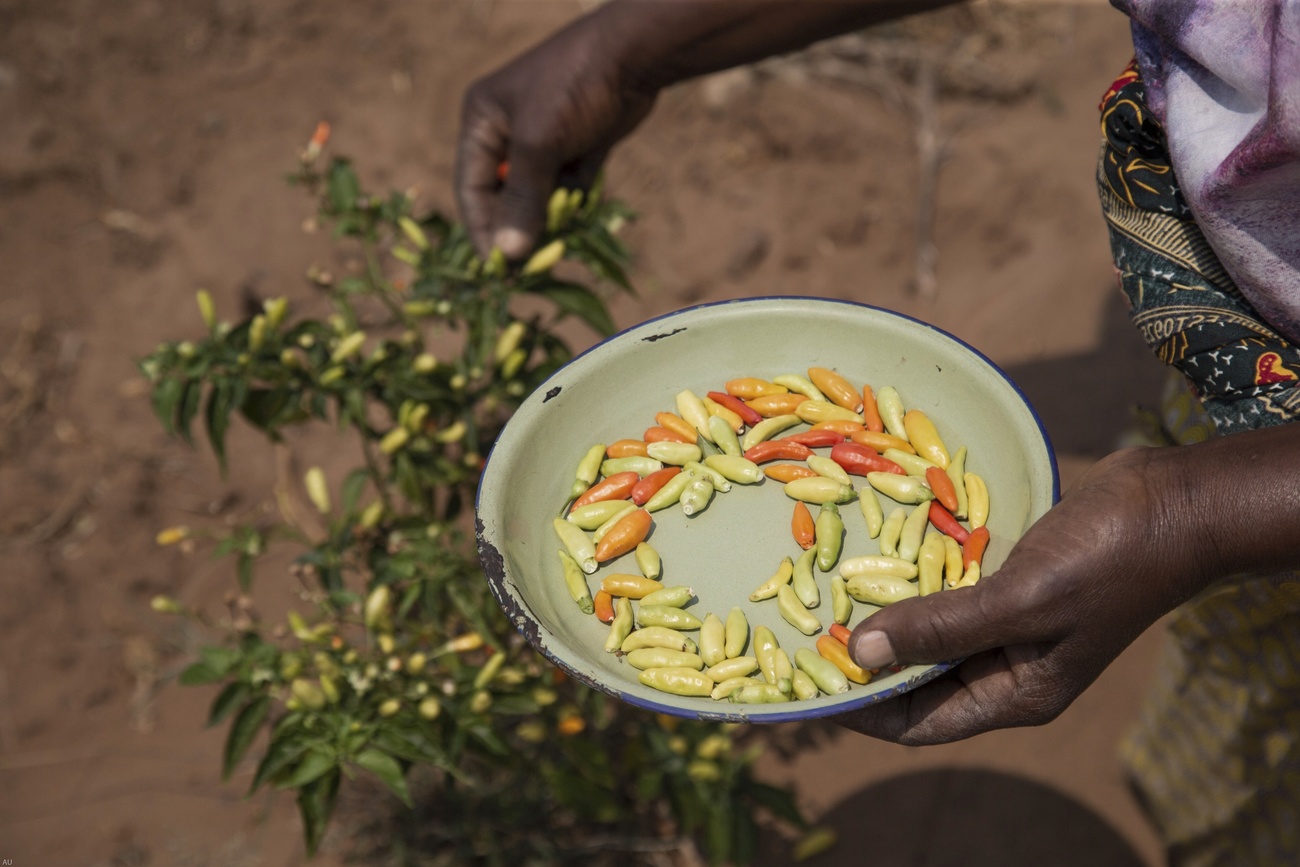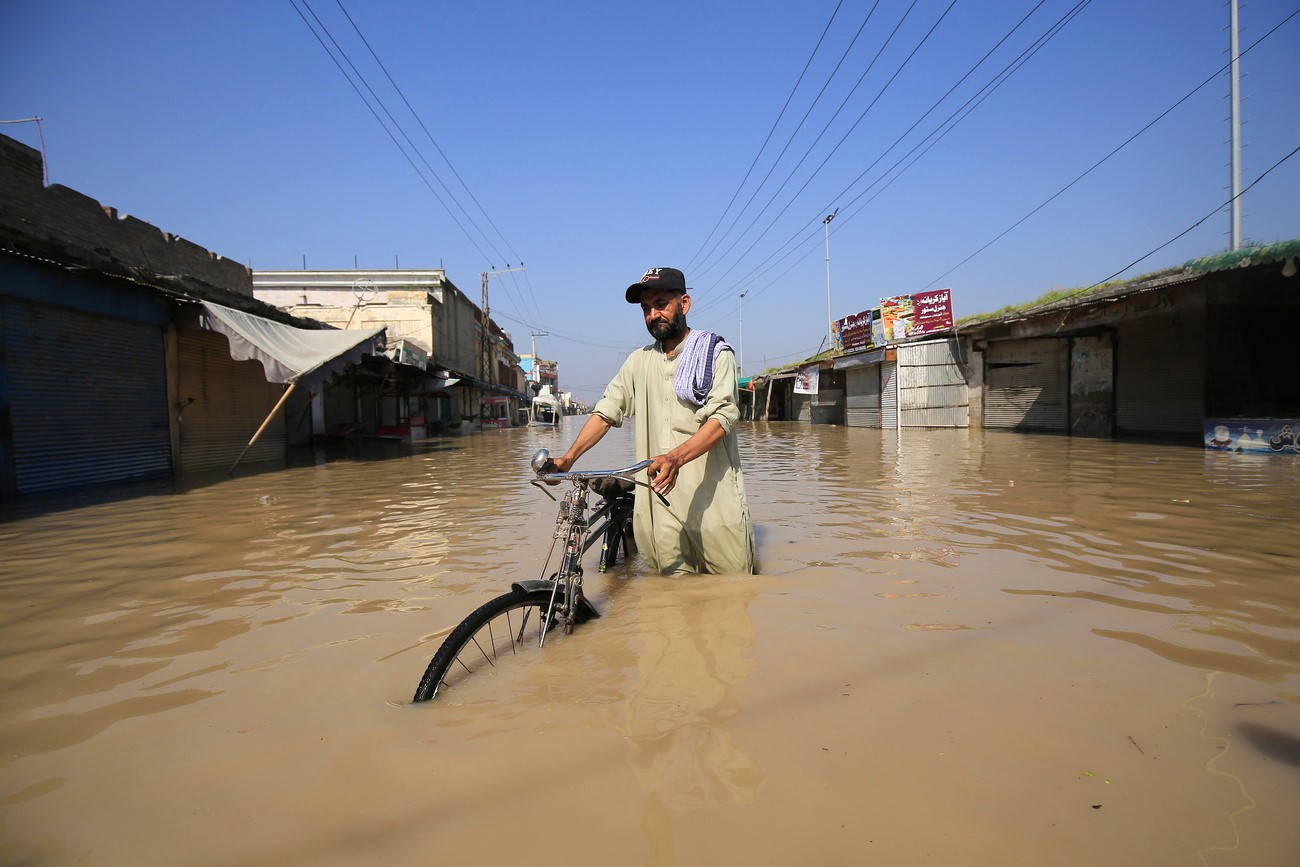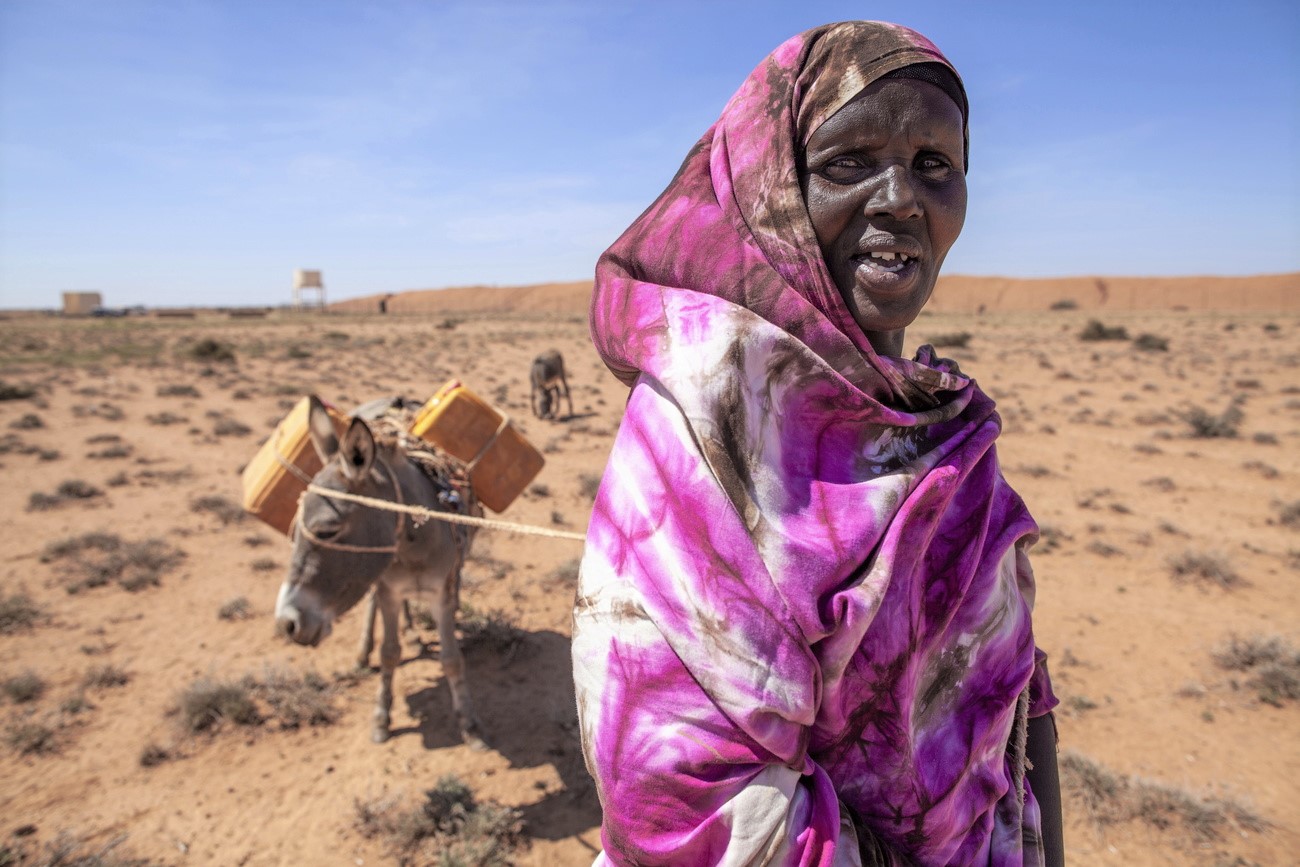Why attempts at expanding the climate donor base fell flat at COP29
Poorer nations that are set to receive $300 billion (CHF270 billion) per year in climate financing, as decided at the recent COP29 summit, say it's not nearly enough. A Swiss proposal to expand the amount through a bigger donor base went nowhere. Laetitia Pettinotti, a researcher at thinktank ODI Global, explains how we got here.
After tense negotiations in Baku, Azerbaijan, the new climate finance goal was adopted in the early hours of Sunday – part of a wider and vague call on all actors to scale up climate finance for developing countries to at least $1.3 trillion a year by 2035.
However, $300 billion a year by 2035 is a small number compared to developing countries’ needs, and that barely goes above the amount that would have been delivered in a ‘business as usual’ scenario (think inflation and improved use of public-private finance). Many negotiation issues were on the table: how much should the new goal be, how much of it should be public or private money, for what kind of climate action (mitigation, adaptation, loss and damage), for how many years, and what should the monitoring process be?
One of the critical issues that stirred tensions and directly impacted the final figure was the question of who should pay for this new goal. Historically, it has been the obligation of developed countries to contribute climate finance to developing countries, in recognition of former’s overwhelming responsibility for our changed climate. But the list of countries considered developed has not seen new additions since it was drawn up in 1992 and admittedly, the world has changed since then.
After much back and forth, the adopted text settled on “developed countries taking the lead” in delivering the $300 billion goal and continuing the voluntary nature of monetary contributions from developing countries and no obligation for those who do contribute to report on it. In other words, status quo for financial contributions from developing countries.
But that’s against the backdrop of an announcement made early on at COP 29, when China, for the first time, formally stated that since 2016 it had given $24.5 billion in financial support for climate change in developing countries. Even further, China indicated its willingness to continue its climate finance flows but on a voluntary basis. Other countries listed as ‘developing’ under the climate regime have come forward in the past pledging finance to multilateral climate funds, including Colombia, Qatar, South Africa and South Korea. But China, as a large emitter and upper-middle-income country, had been pressurised to make a formal commitment to pay climate finance – a switch from voluntary to obligation.
Agreeing on a text that reflected solidarity between developing countries without changing their status as developing countries (and without losing eligibility to receive climate finance) was always going to be an arduous task. Reassurances were made in the text that additional contributions by developing countries will not affect their development or recipient status. In the end, this didn’t prove enough and no developing country formally agreed to contribute to the goal.

More
What do new rules on carbon offsets mean for dealmaker Switzerland?
Income and emission thresholds
Initially, developed countries had called for an expansion of the contributor base early in the three year-long negotiation process – the US made little secret it wanted to see China as a new official contributor. The EU refrained from naming potential candidates, but it supported the expansion of the donor base on the implicit justification that a greater number of contributors would get a higher figure for the goal.
Switzerland and Canada, while not explicitly naming any country, had called for specific income and emission thresholds above which a country should start contributing towards the new climate finance goal. The idea being that many developing countries are now significant emitters and have income levels on par with developed countries who are obligated to contribute climate finance.
Such an idea was expressed in rather uncomfortable terms during a press conference at COP29.
“What can I say to my domestic audience when their country is asked for more money for developing countries, some of which are buying football clubs and luxury hotel chains?,” a journalist from a developed country asked the representatives of coalitions of developing countries.
The unspoken assumption was that developed countries would be able to better make the case at home for more climate finance if they could show that some developing countries were pitching in too.
Consequences of American politics
So, where does this leave us? This specific negotiation point brought to the fore that some developing countries do contribute climate finance. Some have done so for years, others intermittently, hopefully changing the perception of one-way flows from developed to developing countries and affording greater recognition of developing countries’ solidarity.
It also pushed China to state for the first time how much it provided and mobilised in climate finance. Critically, with the likelihood of the US pulling out of the Paris agreement and possibly the climate convention, the formal contributor base may actually be reduced in the near future. Such a prospect definitely loomed large in the way the EU negotiated, bearing in mind it may be on the line for the majority of the climate finance goal. It perhaps also played into China’s and other developing countries’ decision to push back on formally contributing to the new climate finance goal. US domestic politics seems to keep on shaping the global climate governance space.
Edited by Veronica DeVore
The views expressed in this article are solely those of the author and do not necessarily reflect the views of SWI swissinfo.ch.

In compliance with the JTI standards
More: SWI swissinfo.ch certified by the Journalism Trust Initiative












You can find an overview of ongoing debates with our journalists here . Please join us!
If you want to start a conversation about a topic raised in this article or want to report factual errors, email us at english@swissinfo.ch.